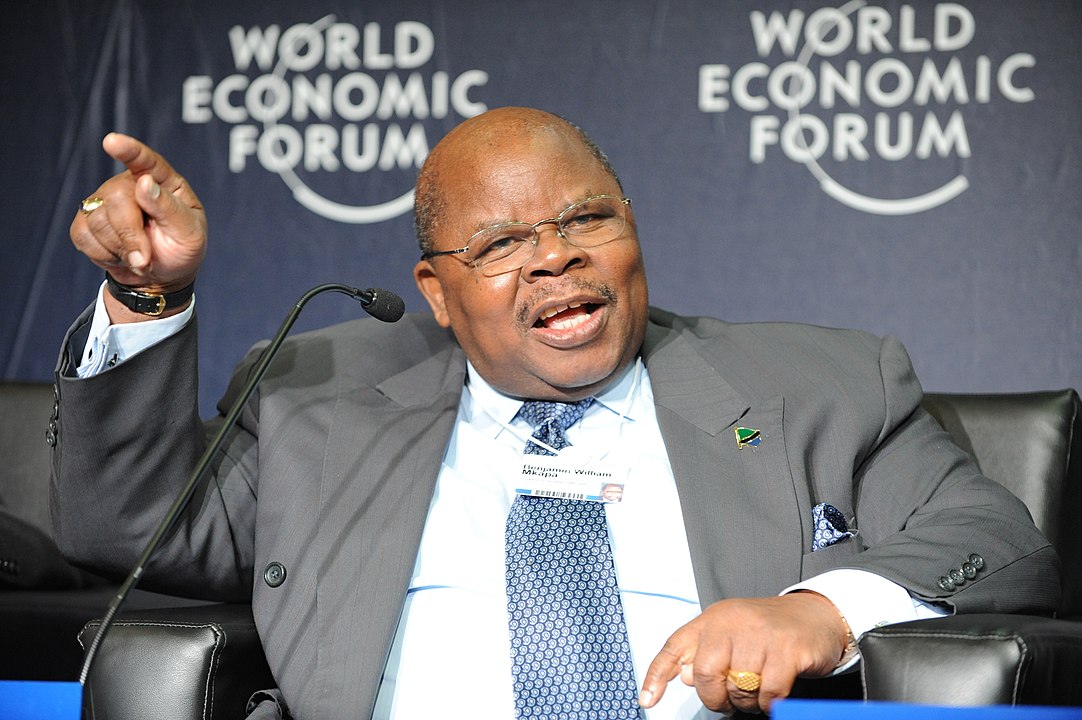A key defining attribute of an inspiring leader is their ability to collect everyone’s ideas and turn those in a vision everyone can get behind. It is leadership toward a common vision everyone has bought into. A great example is the late Benjamin William Mkapa (pictured, URT 3rd President). His presidency was unique in that he was the pivot between the predecessors (Nyerere and Mwinyi) and the successors (Kikwete and Magufuli).
Mkapa showed people the way and accepted his mistakes openly. The early 2000s saw a lot of progress in areas like globalization and tech. He knew the country required a lot of transformation over a long period of time than he constitutionally had so he coached people to fill in the positions long after his time was completed. Most notably, he was the coach and mentor of Tanzania’s current President. Something he also learnt from Mwalimu Nyerere being his and Kikwete’s mentor and coach.
Mkapa understood people and how to use different leadership styles to get them to do what needed to be done. Along the way he built people who could learn and earn development and performance culture. Mkapa communicated openly with his people, pushed them, inspired them and they believed in him and rallied for shared goals. This was a continuous process that creates good people for the future. Truly a great legacy for H.E. the late Benjamin Mkapa(R.I.P.).
Most people will ask, “But Versi; isn’t every leader inspiring? That’s why we follow them.” and you’d be absolutely right. There are actually six leadership styles and to be effective in all circumstances we need to have a level of competence in all six styles. Most of us have one preferred style, at best two, which we tend to use all the time. So every leader will probably have some level of competence in this style as well. Today, I’ll be sharing 4 inspirational leadership competencies we can all apply as we strive for effectiveness:
1. Don’t tell people what to do; engage them to do what needs to be done for mutual benefit.
What you’ll need to do is present the problem, listen to everyone’s ideas and solutions then present the team with a shared vision that incorporates the best of their answers. This vision when bought into by the team gains their commitment and support through to completion.
2. Understanding your needs, my needs and our needs
Everyone has needs; Customers NEED their problems solved. Businesses NEED to sell their products. Employees NEED wages. One group has need of the other. This creates harmony. An effective leader is able to recognize all these needs and use his inspirational style to solve the needs of many and thus the needs of individuals. Inspirational leadership thrives on great relationship management. Understanding the motivations and emotions of others in relation to yours can help you successfully provide solutions.
3. Transparency
Inspirational leadership gives a voice to everyone and offers them a chance to be heard as a way to attain sustainable performance. This means we must practice transparency as everyone’s opinions about everything are out in the open. That raises a challenge in how we manage that level of openness and use it to bring people together. It also challenges us as leaders to be true to be honest and reliable that we will work on the feedback presented.
4. Value – belief system integrated
Simply put, what do our values mean to us and how do we apply them? When we live in those values, we inspire others to do the same and attract likeminded and like-mannered people. The teams’ values reflect on our values as leaders so an integrated set of values is just one of the ways we can inspire others to follow our lead.
Photo: Wikipedia

